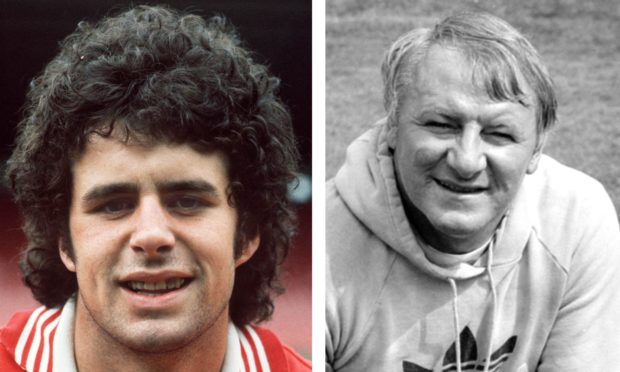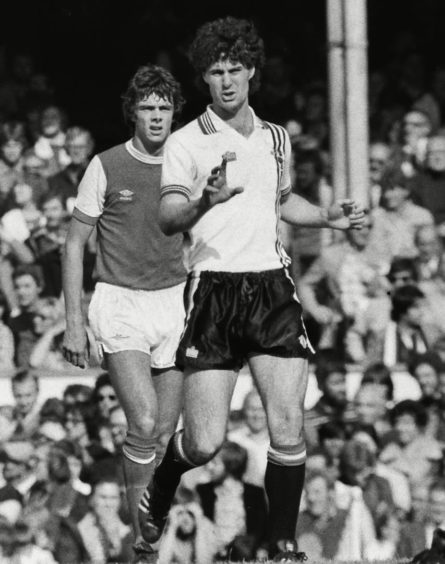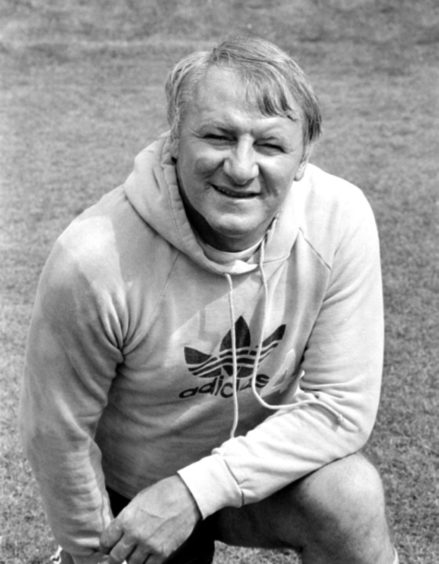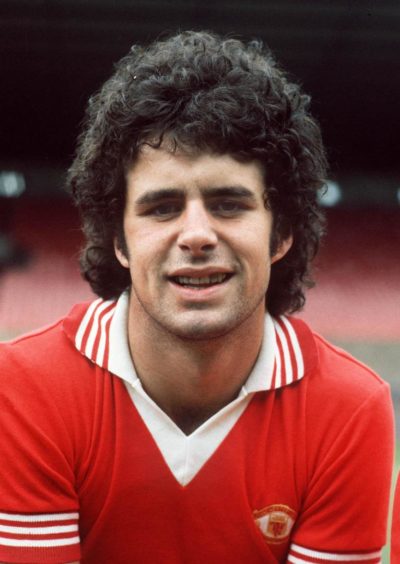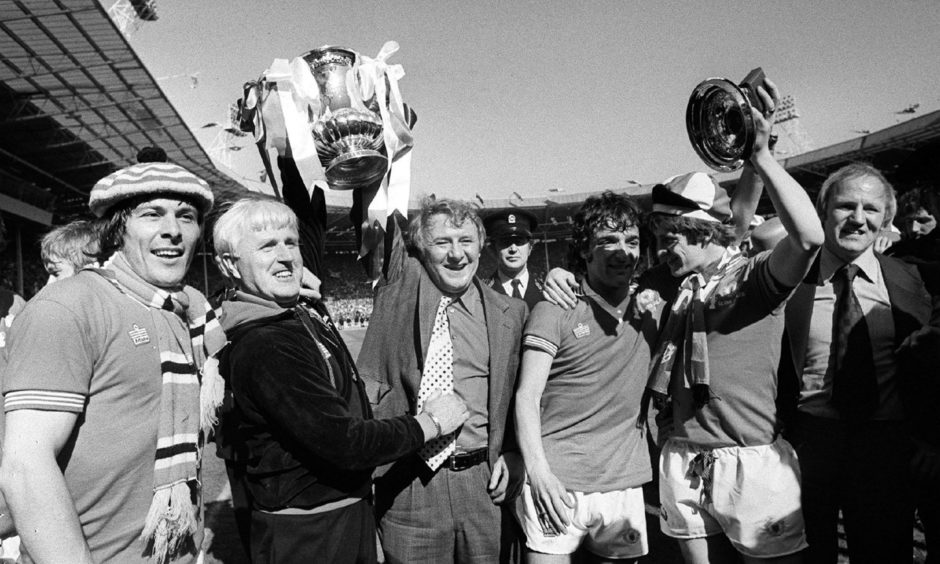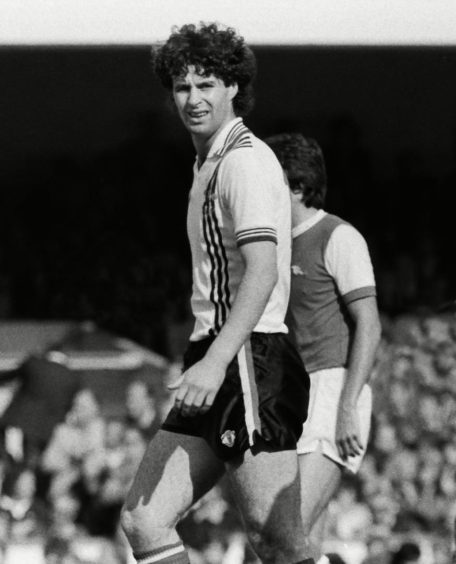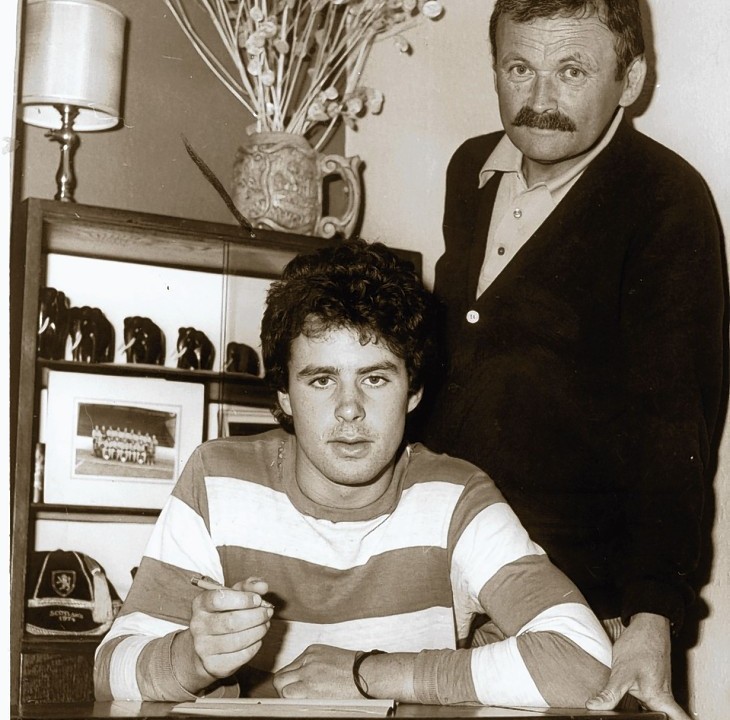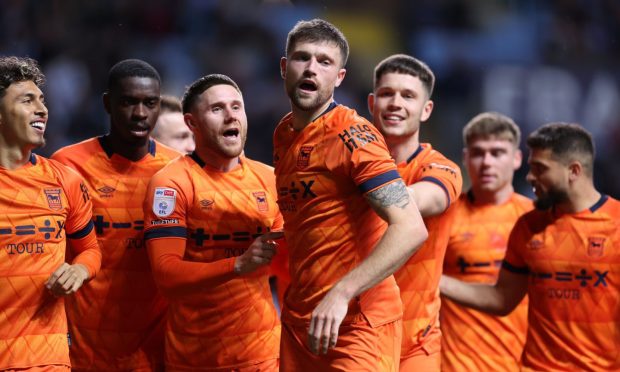Steve Paterson has never forgotten the day when he realised he was moving into a different world in football.
After all, how many Moray teenagers are graced with a visit from one of the biggest names in the sport – as Paterson was when Manchester United manager Tommy Docherty drove all the way from the north west of England to the village of Mosstodloch and sparked attention throughout the community with his shiny new Mercedes.
It was the beginning of a beautiful friendship in 1974 between the 15-year-old Scot, who had shown enough precocious qualities to have been selected for his country at under-18 level and the man known everywhere as The Doc, whose death on Hogmanay, aged 92, elicited tributes from across the globe for this mercurial personality.
Paterson, whose career has encompassed dramatic highs and lows, on and off the pitch, spoke about the depth of gratitude he felt towards his former friend, master mentor, charismatic coach and – while they were involved in an Australian odyssey with Sydney Olympic in the early 1980s – surrogate father figure.
A touch of show business in Morayshire
He said: “It’s hard to believe that the Doc has gone because he was such a fantastic person in my life for so many years.
“Growing up in the late 1960s and early 1970s, I loved football, but there were no youth academies or modern training facilities in these days.
“I usually practiced on my own, and played with my local club, but word must have got out that I had some talent, because I was chosen for the Scotland under-18 squad and I was involved in a really good game against England at Old Trafford which ended 1-1.
”I knew there would be a lot of scouts there, running the rule over the players, and I heard some positive reports about my display.
“But I didn’t imagine for an instant that Tommy would go to the trouble of coming up to Moray and signing me up.
“It was a pretty surreal with this big Merc arriving in Mosstodloch and my family sitting talking contract terms with the manager of Manchester United; who were and still are one of the biggest clubs in the game.
“I just wanted to play football, but my dad told me that I should spend another year at school and, with hindsight, I’m glad that happened.
“It meant I could get some qualifications before I headed down to England in 1975.”
The Doc never forgot his Gorbals upbringing
Paterson was just 16 when he was given a £10,000 signing-on fee at the English giants.
The money was stored in an old Bisto tin in a wardrobe and the Scot, nicknamed Pele, soon became part of the gravy train which stopped at the Stretford End.
Docherty, whose charges were relegated from the top flight, swiftly ensured they returned to what many United aficionados regarded as their rightful position.
But what was life with the Doc like for a youngster from a little north-east hamlet? In Paterson’s case, it turned into a agonising case of what might have been if he had been spared the injury concerns which cast a cloud over his career in Britain.
He recalled: “I only played a handful of games for United, but from the moment I walked onto the Old Trafford turf in a midweek game, I knew it was special.
“Tommy sometimes gets portrayed as a joker in the dressing room, but he wasn’t anything like that. He worked really hard with all the players, made sure we knew our roles and how best we could carry them out, and he was methodical.
“His Glasgow background meant that he was tough, but he also cared a lot about us.
“By the time it came to match days, we didn’t need any big tactical discussions before the kick-off. Tommy and his colleagues had done all the planning and preparation beforehand. He was one of those people who made us all feel special.
“When he left United, it would have been very easy for him to have forgotten all about me. But the opposite was true. He kept in touch – and then, in early 1983, he phoned me and asked if I was interested in a job in Sydney…it was another wonderful opportunity.”
Suddenly there was this figure on the airport carousel
The Doc wasn’t averse to the occasional practical joke and Paterson recalled one extraordinary incident which occurred at Melbourne Airport.
He said: “We had flown up from Sydney for our latest match. There was a lot of travel across Australia with the games taking place against teams who were hundreds of miles away and we grew used to hanging around in airports waiting to collect our stuff.
“Well, we were wondering where the manager was and then, suddenly, the baggage carousel started revolving and, as the luggage and bags were moving along, we noticed Tommy was lying flat in the middle all off these suitcases.
“His eyes were closed, he wasn’t moving, and there were about 100 passengers on the flight who were rubbing their eyes in disbelief. The whole carousel went round and into the hold and when it came back out again, he was still there. Then, just like that, he jumped off, joined the rest of the Sydney Olympic boys and we all burst into laughter.
“It was a brilliant wind-up and it summed up how Tommy was a real one-off.”
‘Why Tommy Docherty mattered so much to me’
Steve Paterson has faced difficult, well-documented periods in his life and has spoken candidly about his problems with alcohol and gambling, which caused him to lose his job as Aberdeen FC manager and sparked a family break-up in the early 2000s.
Yet, when he talked about his relationship with Tommy Docherty, it was akin to hearing a son paying tribute to his late father. And it’s an apt analogy.
As he said: “I have nothing but fond memories of him. He was a terrific, aggressive footballer, somebody who was good enough to appear at two World Cups in 1954 and 1958 [in Switzerland and Sweden], and he was a wonderful motivating figure.
“I knew him from when I was a teenager, but I really became close to him while we were in Australia. He treated me like a son and when he and [his wife] Mary were out having a meal or at a function, I used to babysit his kids and we were one big happy family.
“He never forget his roots, a bit like [Matt] Busby and he fitted into any company.
“On the after-dinner speaking circuit, he was like a stand-up comic with an endless amount of stories and memories and he was a hard act to follow. I thought the world of him.”
Hitching a ride to the 1977 FA Cup final
Most people associate Manchester United players with megabucks and flash cars.
Yet, when Steve Paterson was part of the Old Trafford squad, he was so strapped for cash that he had to hitch-hike to the FA Cup final in an old cattle truck.
As somebody who was still a teenager, he had been given permission by United to return to his home in Moray, but was told to report to Old Trafford the day before the showdown between Tommy Docherty’s side and previously all-conquering Liverpool.
He recalled: “I travelled with my brother-in-law Donald Macaulay, but we couldn’t afford the fare from Mosstodloch, so, dressed in my striped Cup final suit, with its club crest on the breast pocket, we set out to hitch-hike on the Thursday night.
“We flagged down a Baxter’s lorry in Fochabers which took us to Glasgow, then we hitched a lift on a cattle truck driven by a friendly man from Aberdeenshire to Kendal.
“We completed the trip in a Transit van, owned by a joiner who was good enough to drop us off within a couple of miles of Old Trafford, where Donald and I were able to shower, freshen up and take a damp cloth to some of the stains on our clothes.”
Docherty’s team won the match 2-1.
